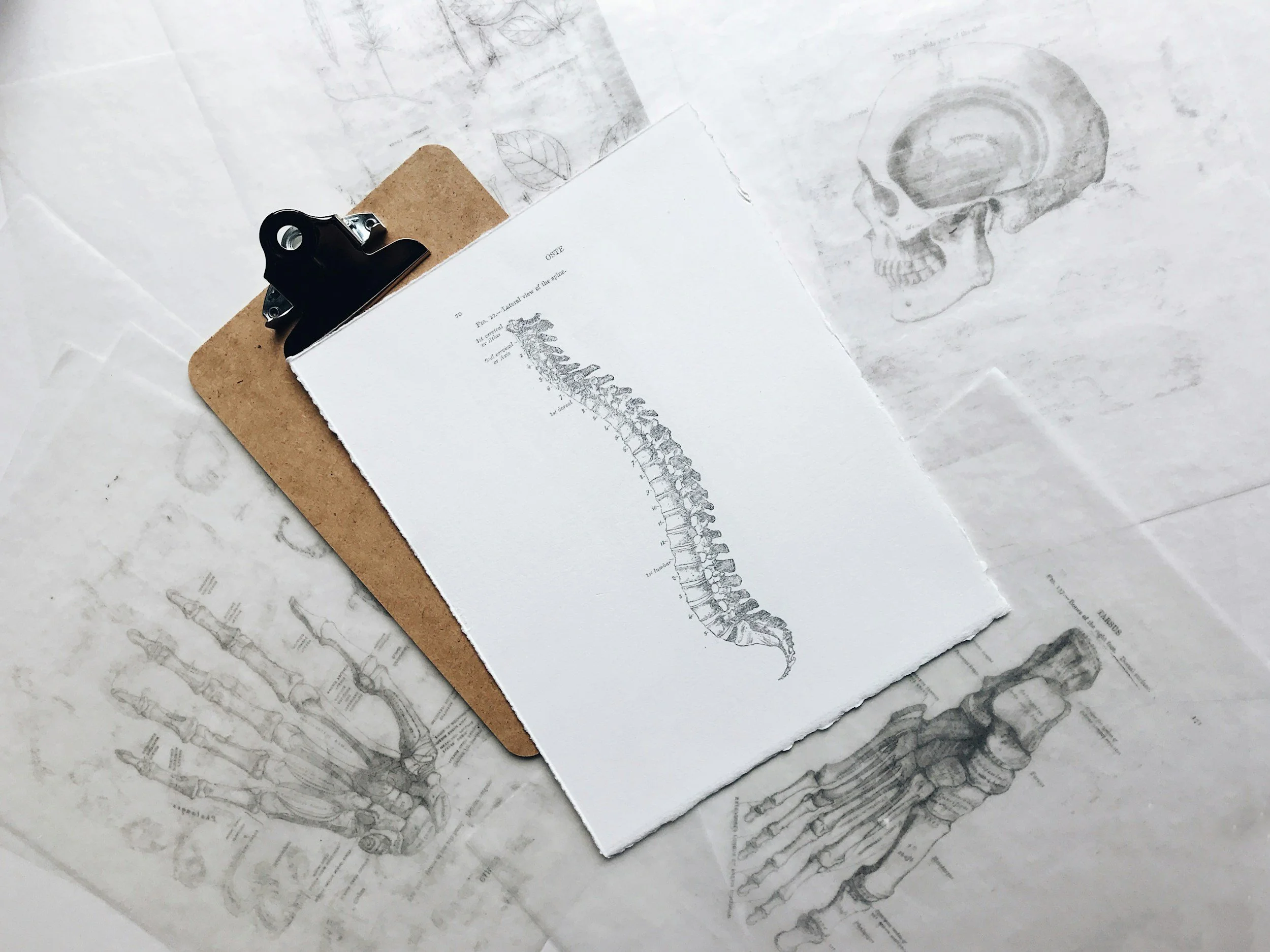
Explore each of our offerings
-

Mental Health Therapy
The purpose of counseling is to reclaim personal power, heal wounds, find balance, and deeply understand oneself. Counseling requires you to be vulnerable, and you can expect that your vulnerability is held with the utmost respect, compassion, and empathy by your practitioner. Although being vulnerable can feel overwhelming and scary, the therapeutic arena helps you feel safe to do so. In this environment, you will have the opportunity to explore your multifaceted, unique, complicated self; make sense of your past; and feel more confident in your future.
-

Nutrition Counseling
Nutrition counseling looks at multiple lifestyle factors such as diet, exercise, sleep, and mindfulness practices to determine how to best address your concerns. Taking this multi-faceted approach, nutrition counseling can help you discover how to improve your overall health and wellness. Nutrition counseling can be used to address a range of concerns that may include: improving physical and mental health, addressing chronic digestive concerns, increasing energy levels, better sleep quality, lowering inflammation, and healing your relationship with food and body image.
-

Couples Counseling
Couples counseling offers a supportive space for partners to strengthen their connection, improve communication, and navigate challenges together. Whether you’re working through conflict, rebuilding trust, adjusting to life transitions, or simply wanting to deepen your relationship, therapy can help you better understand each other’s needs and patterns. Our approach is collaborative and compassionate, helping couples develop healthier communication skills, increase emotional intimacy, and create more fulfilling, aligned relationships. We honor each couple’s unique dynamic and work at a pace that feels supportive and respectful for both partners.
-

Support Groups
Group therapy is a powerful therapeutic intervention that combines an individual's healing journey with that of others. Groups are often held as a part of a series (6 weeks, 8 weeks, etc.), which during these weeks group members develop familiarity with each other, become comfortable exploring group themes and topics, and build a tool kit of knowledge and perspectives related to the topic of the group. Each group experience will look unique depending on the topic, however you can always expect to feel safe yet challenged in a group setting. Support groups are about the collective and how we each bring inherent value and perspective to contribute to the greater whole.
-

EMDR
Eye movement desensitization and reprocessing (EMDR) therapy involves using bilateral stimulation to process traumatic memories. During EMDR, accelerated processing is stimulated, allowing painful memories to be more adaptively stored in the brain. While other therapies focus on emotions, thoughts and responses resulting from traumatic experiences, EMDR focuses directly on cause itself: the trauma, changing the way that memory is stored in the brain. EMDR can help somatically release stored trauma in the body and drastically reduce or eliminate symptoms of PTSD.
-

Art & Play Therapy
Art and play therapy provide creative, developmentally appropriate ways to explore thoughts, emotions, and experiences that may be difficult to express with words alone. Through art-making, imaginative play, and expressive activities, clients are supported in safely processing emotions, building self-awareness, and strengthening coping skills. This approach is especially beneficial for children and adolescents, but can also support adults seeking a more embodied, creative path to healing. Sessions are guided by the client’s needs and pace, fostering a sense of safety, curiosity, and empowerment while encouraging emotional expression, resilience, and growth.
-

Sound Healing
Sound healing supports the nervous system in processing stress and finding restorative balance, wellness and wholeness using tuning forks on and around the physical energy body. Sound healing heralds from a long line of well-established knowledge systems within many different cultures and traditions. Sound healing practices are founded on the perspective that everyone has a unique vibration and embodies a different frequency. A foundational idea of sound healing is that our physical, emotional, and mental symptoms are underscored by energy fields, therefore if we can affect the energy fields through resonance and entrainment with sound, we can see a shift in our physical, emotional, and spiritual state of being.
-

Reiki
Mikao Usui developed reiki in the early 1900s, deriving the term from the Japanese words rei, meaning “universal,” and ki, which refers to the vital life force energy that flows through all living things. Reiki aids in healing by helping people become energetically balanced — physically, emotionally, mentally and spiritually. Benefits include: fostering tissue and bone healing after injury or surgery, stimulating your body’s immune system, promoting natural self-healing, relieving pain and tension, and relieving stored trauma and emotions in the body. Sessions are tailored to each individual’s needs and may help reduce stress, promote emotional clarity, and foster a greater sense of connection and inner peace.
-

Therapeutic Yoga
Yoga, often translated from Sanskrit as "union," invites us to transcend the cycle of resistance and embrace a compassionate, non-judgmental awareness of our present experience. In our sessions together, we embark on a journey to cultivate union between mind and body through a blend of somatic movement and exploration of the 8 limbs of yoga. Rooted in the ancient wisdom of yoga philosophy, our approach encompasses: Yamas and Niyamas; Asana; Pranayama; Pratyahara; Dharana and Dhyana; and Samadhi. Yoga is inclusive and accessible to all, regardless of age, background, or physical ability. Your sessions are customized to meet your unique needs and abilities, ensuring you feel grounded, safe, and empowered to embody your authentic self
-

Massage Therapy
***coming soon!*** Massage therapy is an evidence-based practice that supports both physical and mental health by working directly with the musculoskeletal system, connective tissue (fascia), and nervous system. Therapeutic touch can help reduce muscle and fascial restriction, improve circulation and range of motion, and support recovery from pain and injury, while also promoting parasympathetic nervous system activation associated with stress reduction and improved emotional regulation. Because fascia is richly innervated and responsive to sustained stress, trauma-informed bodywork may support the release of chronic tension patterns and help the body move toward greater regulation, safety, and functional ease.
-

Nature based therapy
Outdoor therapy integrates psychotherapeutic approaches with time spent in natural environments to support mental health, nervous system regulation, and overall wellbeing. Research shows that exposure to nature can reduce stress hormones, improve mood and attention, and support emotional regulation, while movement and sensory engagement outdoors can enhance therapeutic processing. When practiced through a trauma-informed lens, outdoor therapy emphasizes safety, choice, and attunement, using the natural environment as a stabilizing context that can support resilience, embodiment, and deeper integration of therapeutic work.
-

Case Consultation and Clinical Supervision
This offering is for therapists in need of a supportive group for case consultation focused on the whole therapies values of liberation and systemic healing, or an associate therapist looking for supervision. Clinical supervision and consultation is a collaborative, reflective space for therapists to grow their skills, confidence, and professional identity. It’s a place to work together on cases and clinical decision-making, while also paying attention to the therapist’s inner experience- values, blind spots, and strengths. Good supervision supports both client care and therapist wellbeing, helping clinicians stay grounded, ethical, and effective as they develop their own authentic style of practice. We offer individual and group case consultations.

